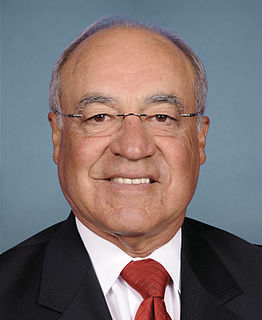A Quote by Ted Deutch
Kids from financially distressed households are twice as likely to have to repeat a grade and more than two-and-a-half more times to struggle with poor health later in life.
Quote Topics
Related Quotes
The point is that families today are spending their money no more foolishly than their parents did. And yet they're five times more likely to go bankrupt, and three times more likely to lose their homes. Families are going broke on the basics - housing, health insurance, and education. These are the kind of bills that you can't just trim around the edges in the event of a downturn.
People who graduate are more resilient financially, and they weather economic downturns better than people who don't graduate. And, throughout their lives, people who graduate are more likely to be economically secure, more likely to be healthy, and more likely to live longer. Face it: A college degree puts a lot in your corner.
It has been proven time and time again in countless studies that students who actively participate in arts education are twice as likely to read for pleasure, have strengthened problem-solving and critical thinking skills, are four times more likely to be recognized for academic achievement, four times more likely to participate in a math and science fair.
I teach something called The Law of Probabilities, which says the more things you try, the more likely one of them will work. The more books you read, the more likely one of them will have an answer to a question that could solve the major problems of your life.. make you wealthier, solve a health problem, whatever it might be.

































